This rare autumn vegetable is the perfect addition to your stir-fry or salad【SoraKitchen】
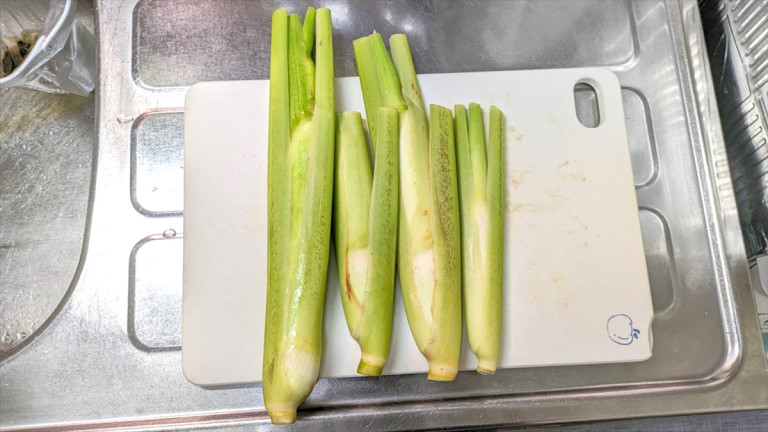
It may look like nothing special, but it’s actually the perfect vegetable to pair with anything!
Every now and then, when browsing a farmer’s market, shopping arcade, or even a supermarket you don’t usually frequent, you’ll spot food you’ve never seen before. Most people might stop and examine it for a moment, but in most cases would probably not purchase it, thinking, “I don’t know how to cook this anyway.”
But we’re here to tell you–try it! At least, try a vegetable called “makomodake”, which in English is referred to as Machurian wild rice shoots or water bamboo. Though the plant also produces grains that can be cooked like rice, the stem is edible and is a autumnal ingredient used in stir-fries, salads, and soups in Southeast and East Asia. It’s not a very common ingredient in Japan, but our Japanese-language reporter and rare-food connoisseur Haruka Takagi looks for them every fall because she absolutely loves them.
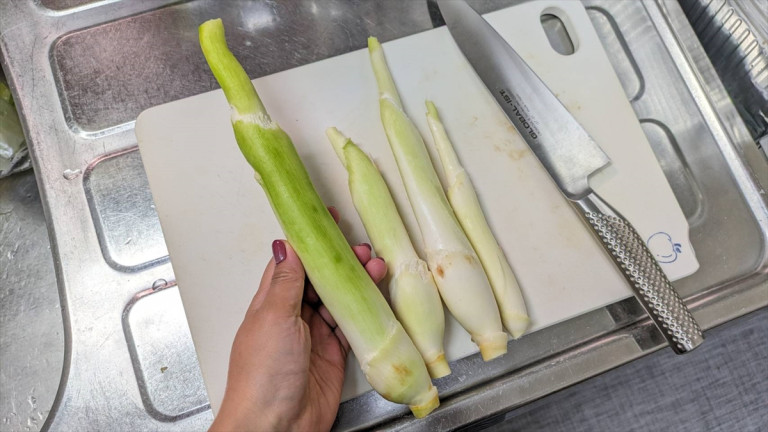
Typically she finds them at the farmer’s markets on highway rest stops (called “Michi no Eki” in Japanese) from September to November. They don’t look particularly appetizing–they honestly just look like wild grass stalks you might find growing in an abandoned field–so you may have just skipped over them if you’ve ever encountered them. They are slightly bulbous on the bottom and grow thinner on the top. When preparing to cook them, you have to first peel off the external skin to reveal the edible white flesh inside.
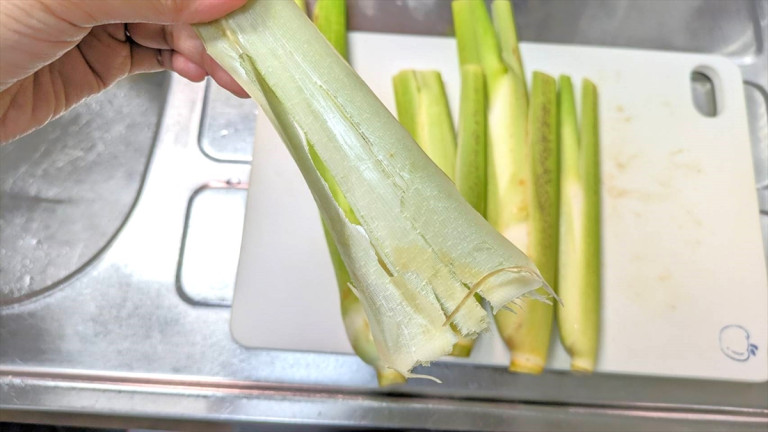
As a member of the Poaceae family of land grasses, the edges of the leaves can be pretty sharp, so you have to be careful when handling them. They’re much thicker than the leaves of bamboo and bamboo grass, so it really hurts if they cut you. Haruka recommends using a kitchen knife or a peeler so that you don’t have to touch them with your hands.
Once the leaves were removed, Haruka cut the stalks into thin rounds, as she planned to stir-fry them with some meat. Once you cut them, you can clearly see what looks like the vascular tissue that the plant uses to distribute water and nutrients, which is pretty cool.
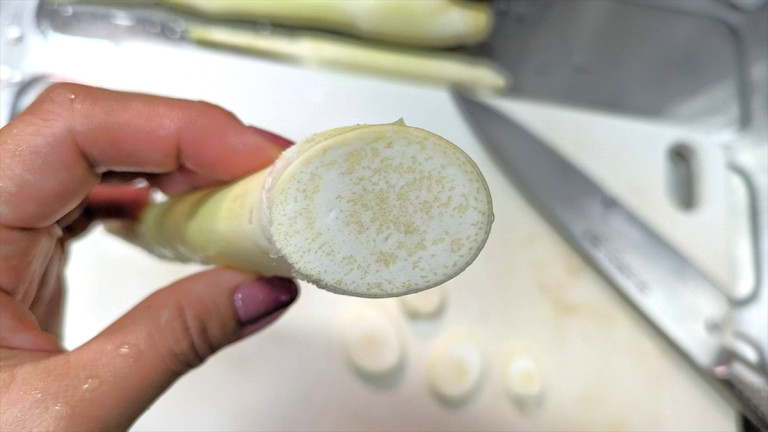
Sometimes you’ll see little black dots in the flesh of the plant. These are pigment residues leftover from a parasite called smut fungus. The name might scare you, but the stalk is perfectly safe to eat, so don’t worry. However, the dots are a sign that the vegetable is going to go bad soon, so if you see them, make sure to eat your Machurian wild rice shoots sooner rather than later, lest the flavor decline.
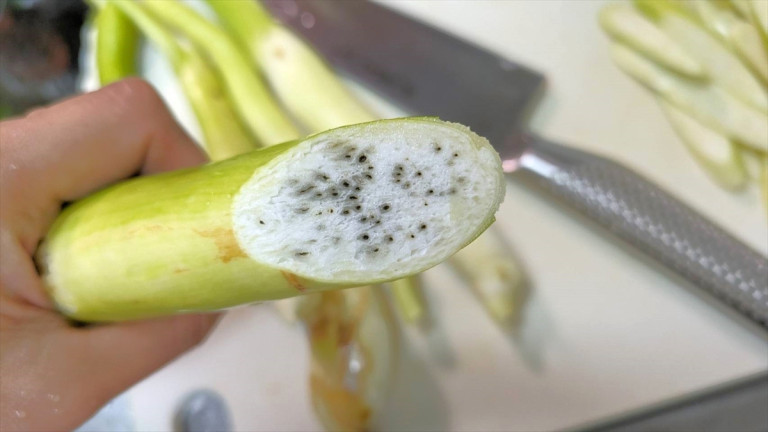
Speaking of, the stalks don’t have any harsh or bitter flavors. In fact, they taste almost like a combination of bamboo shoots and baby corn, but also divided by two. They taste really good when paired with meat, so Haruka likes to stir-fry them with pork.
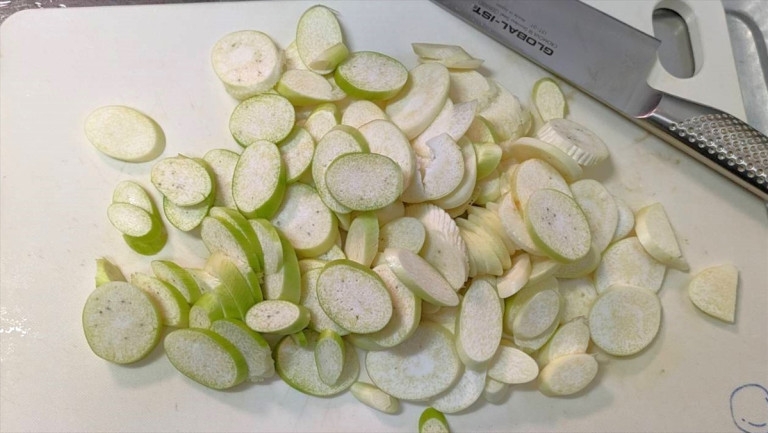
She starts her stir-fry by adding sesame oil to a pan and lightly sautéing the pork until it’s cooked through and tender.
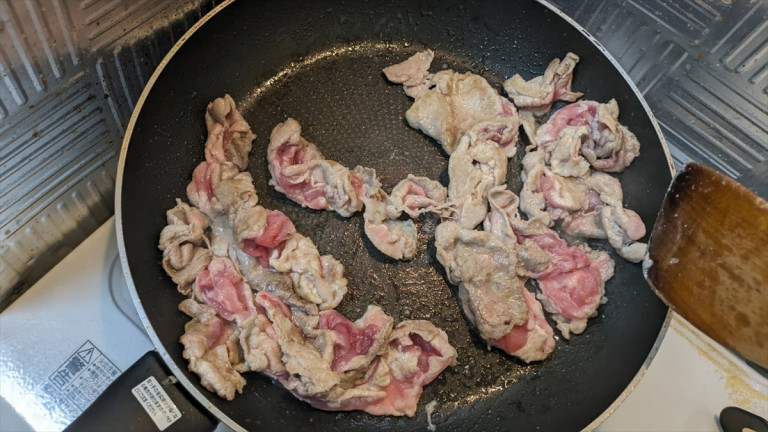
Then she adds the Manchurian wild rice shoot slices to the pan and seasons them liberally with salt.

Once the shoots have softened, they’re ready to eat. It takes about five minutes. It’s so easy!
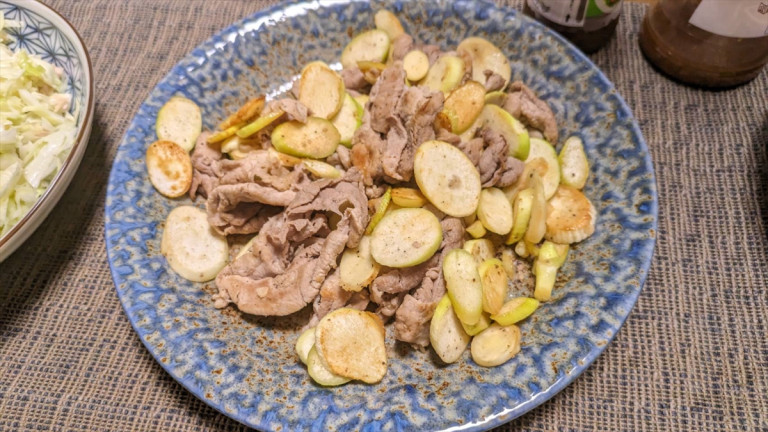
You can also eat the shoots raw, or boil them and top them with a sauce (mayonnaise is a popular condiment choice), but Haruka’s favorite way to eat them is stir-fried like this. They aren’t the kind of vegetable that’s rich in umami, and they have a very light flavor, so a lot of people like to dress them up with salt, soy sauce, and oyster sauce. In Haruka’s opinion, they do a great job of soaking up the fat of meat, which makes them kind of like eggplant in that way.

Stir-fried like this, they’re somewhat crunchy on the outside, with an internal softness similar to the tip of a bamboo shoot, and have no strong flavor or bitterness to them, so they’re really the perfect vegetable to pair with any dish.
Haruka also tried cooking hers meunière-style, by dredging it in flower, together with salmon, and it was insanely good. It soaked up the flavor of butter and salmon perfectly. That’s why she really recommends pairing it with some kind of fat.
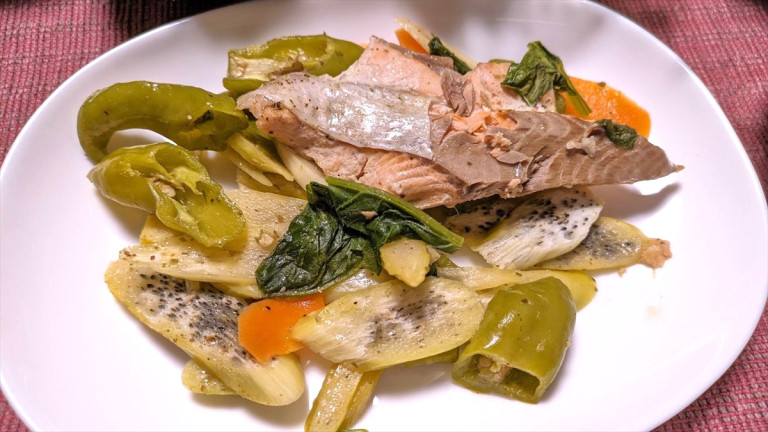
At this point in the season it might be a bit hard to find Manchurian wild rice shoots, so if you do, consider yourself very lucky! Don’t be scared of its grass-like appearance and give it a try with your next dinner. In fact, don’t be scared of most food’s appearance. It probably isn’t as weird as it looks!
Images © SoraNews24
● Want to hear about SoraNews24’s latest articles as soon as they’re published? Follow us on Facebook and Twitter!
Credit:

0 comments:
Post a Comment